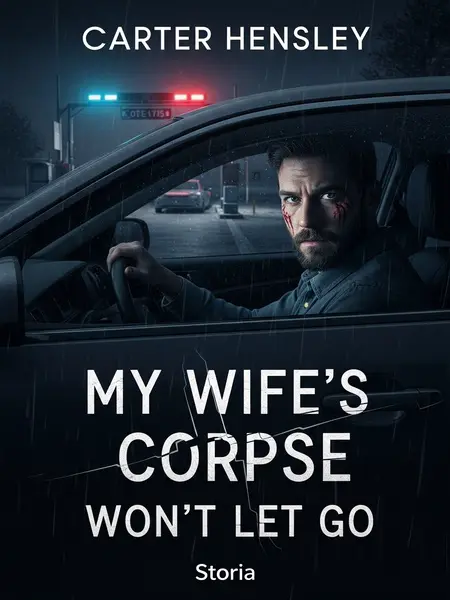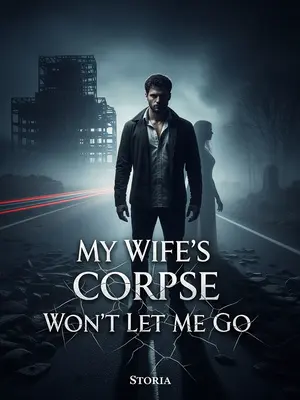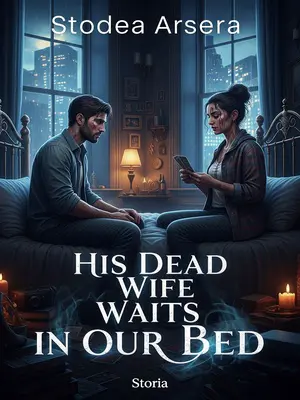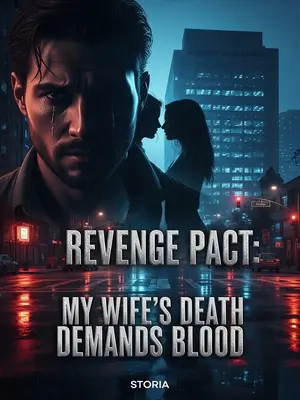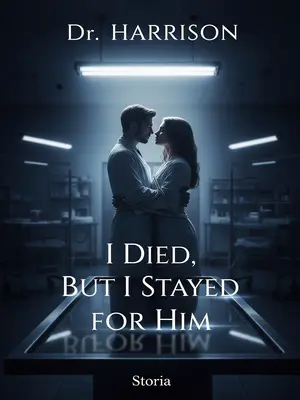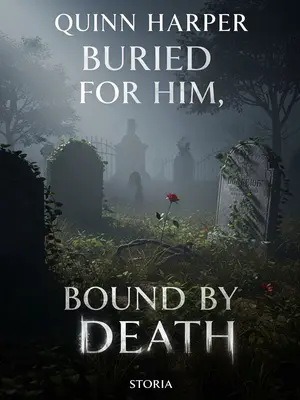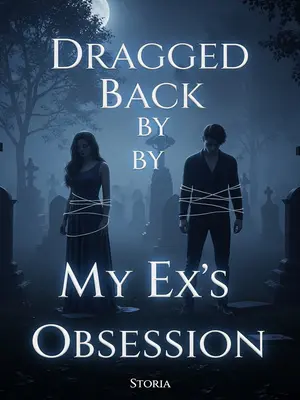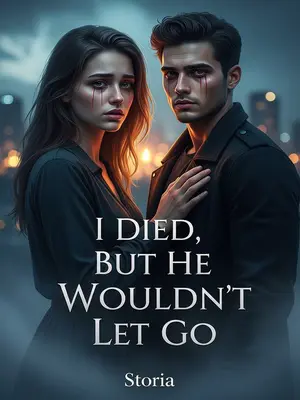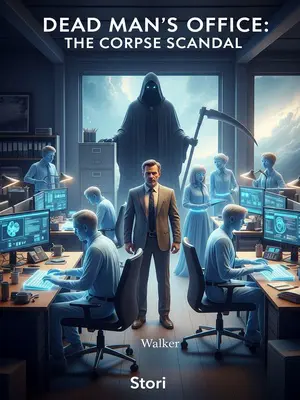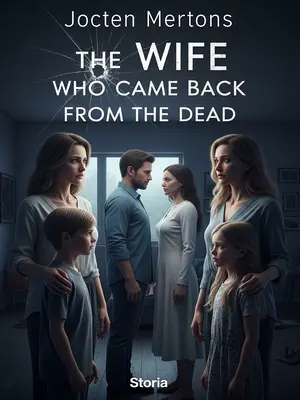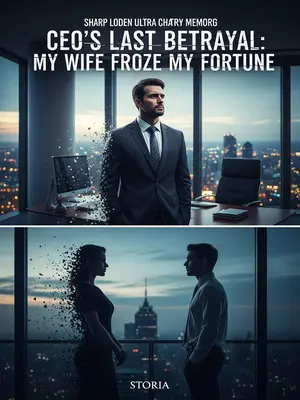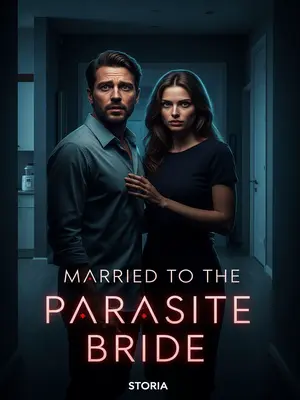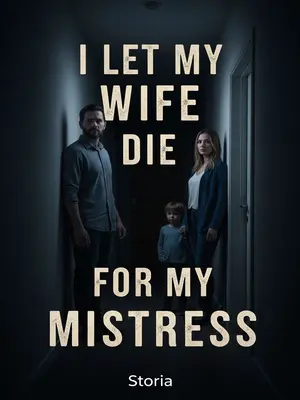Chapter 4: A Call in the Dark
Despair washed over me like a bucket of ice water.
I leaned my head against the pillar, my mind slipping away again, like a rusty old machine grinding to a halt.
I pictured the dusty footprints I’d left behind, a glowing trail for the monster to follow.
My vision blurred.
I bit down on my lip, trying to keep from screaming.
As my consciousness faded, my hand touched something cold, rough, and hard.
I shuddered, my mind snapping back.
I grabbed the brick I’d found and, using all my strength, hurled it out of the building. With no exterior walls, the brick arced into the night and shattered on the ground. I didn’t know if it would fool my wife’s corpse, but it was all I could do. Behind me, the rustling suddenly grew frantic. From the sound, she was racing downstairs. I silently thanked God and turned toward the stairwell. A long, thin shadow nearly six feet long flashed under the dim moonlight, slithering close to the ground, with two thin legs at each end. My stomach churned and I nearly threw up. I finally understood what that rustling was—it was the sound of something moving like a snake, its body writhing and scraping along the ground.
I covered my mouth to stifle a sob. The image burned into my mind, impossible to forget. My hands shook so badly I almost dropped my phone.
How could my wife’s corpse turn into such a monstrous thing? She was my wife! The woman I’d loved for years.
How could I imagine her like this?
A cold wind swept through the building, and I shivered. Only then did I realize my shirt was soaked with sweat, icy against my skin. I leaned on the pillar, dazed, and kept going upstairs.
The wind whistled through broken windows.
I hugged myself, shivering, feeling the weight of guilt and grief pressing down.
I kept moving, step by step, because stopping meant dying.
My wife was dead. She died from poisoning. I bought the poison. I had severe depression and had tried to end my life more than once. A few days ago, I bought poison online and hid it deep in a kitchen cabinet. Today, my wife went out. I planned to end it all while the house was empty. But my editor from the publishing house showed up out of nowhere, talked with me for hours, and then dragged me out for dinner. By the time I got home, exhausted, I’d forgotten about the poisoned lemonade on the table. When I finally remembered and rushed back, I found my wife collapsed on the floor, already gone. There was no way to explain. I wasn’t afraid of dying, but I couldn’t become a murderer. I couldn’t let my parents carry that shame. I couldn’t let the world hate me. And if I was convicted, all my work would be pulled, half a lifetime’s effort gone, and my parents would lose everything. I sat beside my wife’s body, crying for hours, and finally made a terrible decision—to secretly get rid of her body. Her parents had passed away, and she didn’t have many close friends. If I handled it right, maybe I could cover it up. I put her in the trunk, planning to drive somewhere remote and bury her. I never expected another panic attack on the way.
The guilt never let up. It gnawed at me, night after night, a constant companion.
I could still see her face, peaceful in death, and the empty glass on the table. I’d replayed that moment a thousand times, wishing I could go back, wishing I’d remembered sooner. But wishing never changed a damn thing.
From a distance, the top floors of the abandoned building looked even darker, probably because more of it had been built. These half-finished places were everywhere—just the frame done, a few floors closed in, then the money or permits ran out. I climbed two more flights and found a half-enclosed space with corridors and rooms half-built. I found a hidden HVAC room, squeezed inside, and curled up in the darkest corner I could find.
The urgent thing now was to find someone I could trust to save me. It had to be someone who, even if they found my wife’s body, would help me cover it up. My parents weren’t in this state. The only person I could call was my friend and agent, Lucas Everett. I took out my phone and sent him a Facebook message begging for help, along with my location.
It was already 11:30 at night.
I worried he’d already gone to bed and wouldn’t see it. But before long, his call came. The phone screen flashed in the dark, and I hurriedly...
My thumb fumbled over the answer button, my hands slick with sweat. Lucas’s voice crackled through the phone, warm and familiar, laced with confusion and concern. “Carter? Are you okay? Where the hell are you?”
I pressed the phone to my ear, my voice barely above a whisper. “Lucas, I need you. Please. Something’s happened. I’m at an abandoned site off Route 6, near the old water tower. I—I can’t explain. Just come. Please, man.”
Lucas didn’t ask questions—he never did, not when it mattered.
“Stay put. I’m on my way. Ten minutes, tops. Don’t hang up, okay?”
For the first time all night, I felt the faintest flicker of hope.
I squeezed my eyes shut, clutching the phone like a lifeline. Somewhere in the blackness, footsteps echoed—real or imagined, I couldn’t tell. But I held on, waiting for the sound of Lucas’s car, for the promise of rescue, for a way back to the world of the living.
